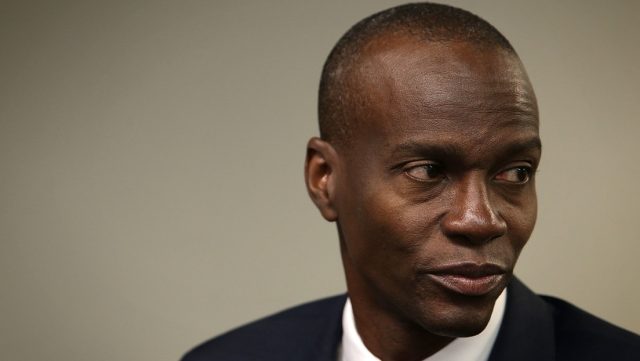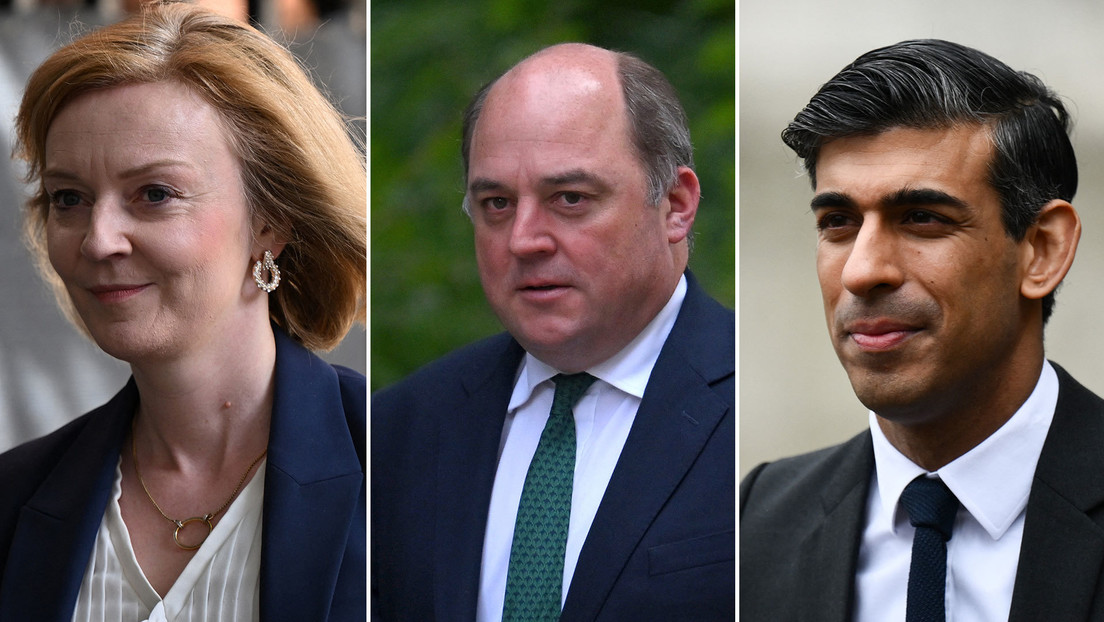The assassination of Jovenel Moïse in Haiti remains unsolved. One year after the crime, perpetrated on July 7, 2021, there are more questions after the answers given by the Justice system about an event that even affected the Armed Forces of Colombia and the United States.
Since Moïse’s murder was known —shot by Colombian mercenaries inside the presidential residence in Port-au-Prince, the country’s capital—, the investigations and the advances on what happened that morning have been revealed through testimonies of those involved. and through leaks to the press.
In addition, the case has been surrounded by irregularities and threats to judges and investigators, which suggest that behind Moïse’s assassination there are power factors that bet on impunity to be triumphant in thiis crime, reports RT.
A dangerous dossier in Haiti
The resistance of the judges to take on the file and the consequent resignations presented by the litigants, who alleged death threats, health reasons and even «personal reasons», are evidence of the complexities that the case entails.
In fact, the Haitian Justice took more than a month to appoint the first judge to take charge of the investigations, given that the jurists refused to participate in the case for fear of suffering attacks on themselves or on their relatives.
Finally, Mathieu Chanlatte was the first judge appointed for the case, but he resigned a few days later «for reasons of personal convenience», indicating that the authorities of the Ministry of the Interior in charge of providing personal security did not respond to his requests.
Since then, the file has been in charge of five judges and none of them has made significant progress. Chanlatte was replaced by Garry Orélien, who resigned last January citing personal reasons, days after he was accused of alleged corruption.
The row of magistrates was continued by Chavannes Etienne, who in February gave up continuing the investigations, alleging lack of resources, and the need to demand the extradition to Haiti of all the suspects in the case who are imprisoned abroad, especially in the US.
Merlan Belabre was then appointed, but he was never able to start the investigations because «he did not have the physical dossier» or «the means to proceed with the investigations». The case is currently being handled by Judge Alter Wesser Voltaire, appointed at the end of May.
In which direction do the investigations lead to?
After Moïse’s assassination, which would have been planned through different meetings in Colombia, the United States and the Dominican Republic, more than 40 people were arrested, including 18 former soldiers of the Colombian Army —seven of them trained by the Pentagon— who acted as mercenaries and who confessed their participation in the crime. In addition, the bodies of three other former Colombian soldiers who were killed on the day of the crime were identified: Duberney Capador, the alleged leader, Javier Mauricio Romero and Miguel Garzón.
More than a dozen local police officers and two US citizens of Haitian origin were also deprived of their liberty: James Solages and Joseph Vincent, who would have participated as translators for the Colombian mercenaries. Solages was said to have been a security guard for businessmen Reginald Boulos, linked to the 1991 and 2004 coups in Haiti, and for Dimitri Vorbe, vice president of the country’s main electricity company.
Incriminated in the list of alleged masterminds are Christian Emmanuel Sanon, a Haitian doctor residing in Florida, US; Joseph Félix Badio, former official of the Haitian Ministry of Justice; and Ashkard Joseph Pierre, a businessman who lives in Canada and who worked in the commercial area of the Haitian consulate.
About Sanon, arrested in the first days, it was learned that he had been in Haiti before the event and would have contacted a private security company to perpetrate the crime. As for Badio, he would have given the order for the mercenaries to execute the president; while Pierre appears as Sanon’s business partner.
Three other subjects investigated by the US are also mentioned: Mario Antonio Palacios, a former Colombian military officer detained in Panama during an air stopover; the Haitian nationalized Chilean citizen Rodolphe Jaar, captured in the Dominican Republic; and former Haitian senator John Joel Joseph, extradited from Jamaica. In addition, the businessman Samir Handal, arrested in Turkey in November 2021, where he still remains, has also been linked to the crime.
Also appearing in the case is the dismissed former judge Windelle Coq, who was said to be sworn in as the new president after carrying out the murder against Moïse. Similarly, the private security company CTU Security, a company based in Doral Beach, Miami (US) and directed by the Venezuelan opponent Antonio Enmanuel Intriago Valera, is designated as responsible for executing the assassination plan.
The current Prime Minister of Haiti, Ariel Henry, who has been in office since July 20, 2021, is also being investigated in the process and received an order prohibiting him from leaving the country for his alleged involvement in the assassination of Moïse, after confirming that he would have had several phone calls with Badio, one of the three main suspects in the assassination.Crisis intensified in Haiti
The acute humanitarian crisis marked by famine, the deterioration of the economy and the ungovernability that Haitians were already experiencing before and during Moïse’s government – who faced massive protests during his mandate – has intensified after his assassination, because now the country is also facing a wave of violence led by armed gangs that control different regions at will.
In mid-May, the United Nations (UN) High Commissioner for Human Rights, Michelle Bachelet, warned that the violence unleashed by armed gangs in Haiti had left at least 188 fatalities in less than a month, in addition to other serious crimes against Human Rights, such as the use of minors in criminal gangs.
According to UN data, between April 24 and May 16, 92 people «not affiliated with gangs» and another 96, who would be members of these armed groups, were killed in coordinated armed attacks in Port-au-Prince, a A figure that the agency said could be «much higher» and that includes murders with «beheadings, cutting and burning of bodies», as well as the killing of minors who are accused by gang members as «informants» of rival groups.
Another edge of the crisis is massive sexual violence, which has included «the gang rape of children up to 10 years old» by members of armed gangs to «terrorize and punish» people who live in areas controlled by rival criminal groups. Added to this, are the forced displacements and restrictions on mobility imposed by criminal groups, a situation that affects «thousands of people», according to the UN.
Widespread impunity
The former first lady, Martine Moïse, has repeatedly said that the masterminds of her husband’s murder are still free.
Moïse’s widow, who was injured during the assault and faked her death, has also complained about the lack of justice and has pointed out that «the oligarchs» and the «system» that prevails on the island are responsible for the murder of her husband .
Prime Minister Ariel Henry, who has been the victim of attacks by armed groups against him and was appointed to that position by Moïse himself, days before the assassination, has also denounced the weaknesses of the Justice system in his country. «I have a nasty feeling that those who conceived and financed this macabre scheme are still running the streets and still escaping our justice system», he said in a mid-June tweet.
These complaints about the procedural delay were also made at the time by former Foreign Minister Claude Joseph, who served as Prime Minister after Moïse’s assassination and handed over the position to Henry. The diplomat warned that the lack of progress in the investigations was due to the lack of «political will» to solve the case and the interests of some sectors to divert the investigations.
A year after the events, the mercenaries who confessed their material responsibility for the act are incarcerated in Haiti and have denounced torture and violation of their rights inside the prison. Meanwhile, the main question remains an enigma: who ordered Moïse’s murder?



